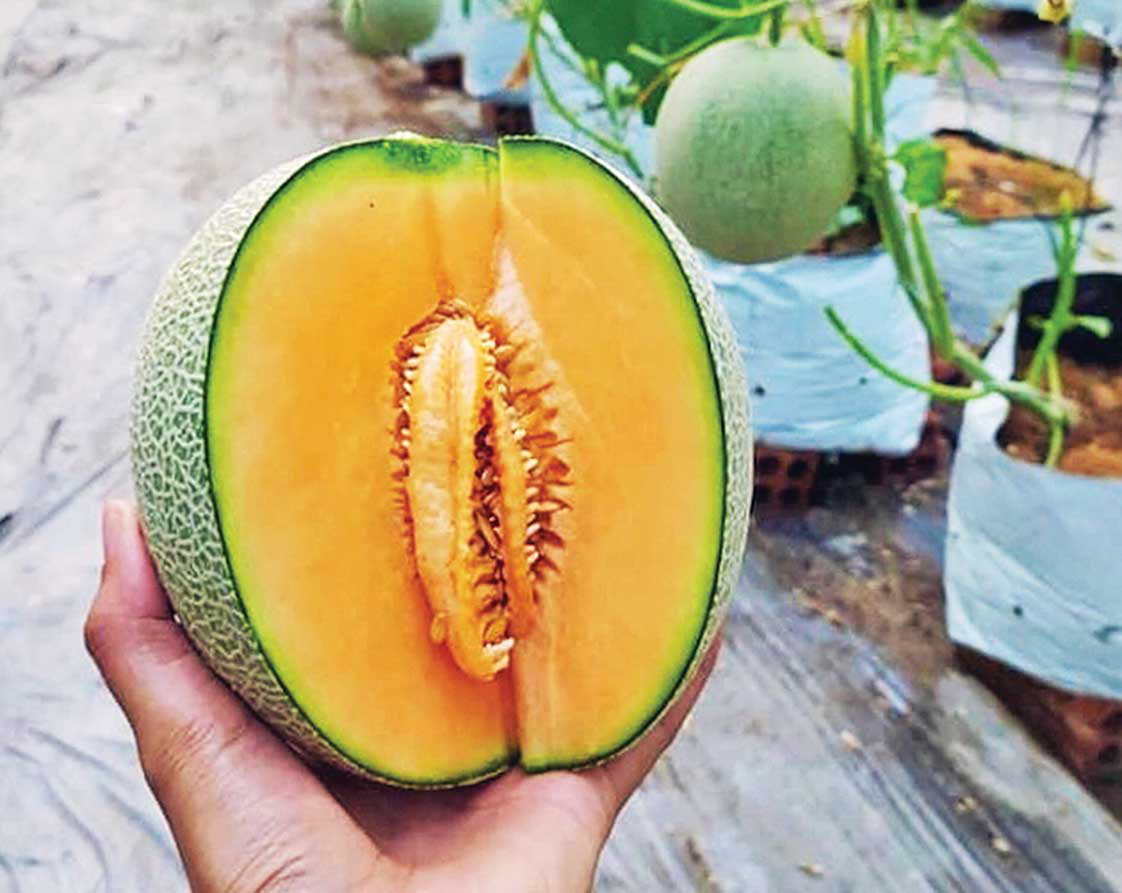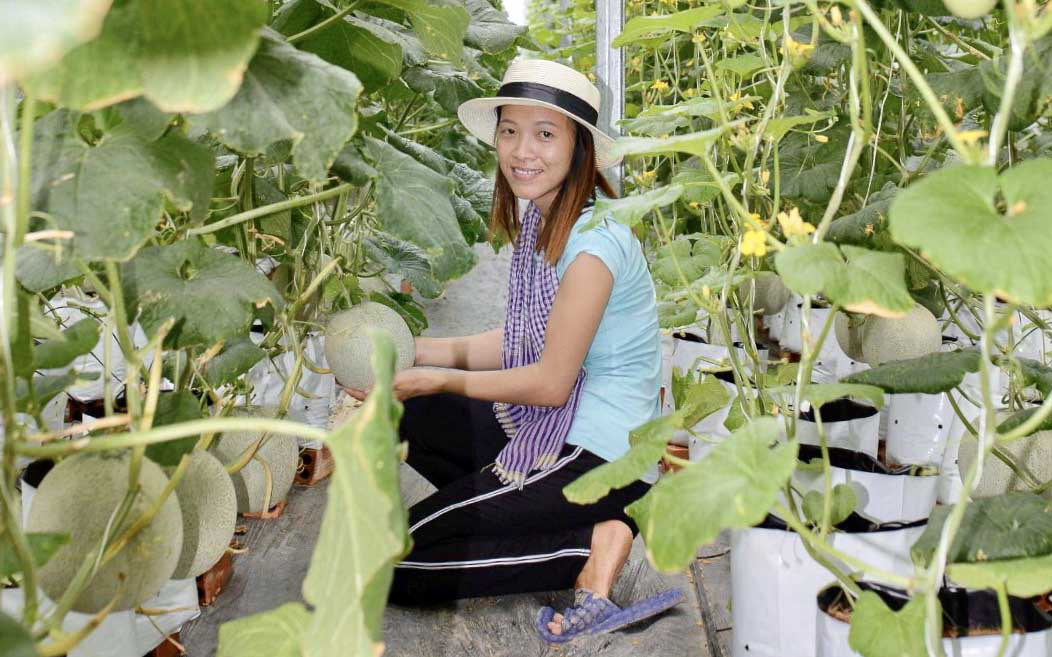Nguyen Thi Mai Khuong, a food technology engineer, has pushed herself outside her comfort zone and worked to become one of the pioneers in hi-tech cantaloupe farming in the heart of the southern province of An Giang.
A university graduate in food technology, Khuong had worked for an environmental company for eight years before she realized her passion was elsewhere.
She decided to return to her hometown in My Hoa Ward, Long Xuyen City, the province’s heart, to answer the call of her heart: building her own hi-tech farm.
That was in 2018.
Now her farm is thriving as one of the city’s first ones to apply technology to cantaloupe farming.
Not looking back
Eager to tap into her homeland’s rich agriculture potential and turn her own long-cherished dream into reality, Khuong began to build her own farm from scratch based on a vague idea she had thought up during her years working at the environmental company.
She was confident her family’s land and farming tradition would be useful to her drive to seek the ‘next big thing,’ but was not sure which fruit to pick. She finally decided on cantaloupe, which was then in high demand.
The 34-year-old engineer then made multiple field trips to nearby provinces where she got to observe cultivating methods and how technology was applied at work.
Apart from her own funding accumulated from earlier years, Khuong applied for a sponsorship package offered by the local government.
In early 2018, her project finally got rolling with total funding of nearly VND550 million (US$23,640), half of which came from the grant.
Khuong invested all of her financial resources into a 1,000-square-meter net house and pinned her hope on over 2,000 cantaloupe plants; however, the switch from an office worker to a farm owner was not as seamless as she had expected.
“I had much difficulty gaining access to technical support and outlets at first. I was required to prove our consumption power to the grant provider in order to get the sponsorship package sustained, but we couldn’t secure any wholesale buyer then,” Khuong recalled.
From her Internet research, she managed to get help and can now solve problems on her own.
Modern technology including a drip irrigation system and a filter system is installed to closely monitor seedlings, irrigation volume, fertilizers, and pesticides, allowing her to tend better to her plantation with the least effort, Khuong said.
One of her major crops, the Taki melon variety from Japan, is grown in net houses, a form of confined agricultural space that aims to reduce damage by insects, wind, and hail, ensure safety for farmers, and yield quality produce.
Other stringent technical requirements include farmers being personally involved in germination, pollination, pruning, keeping close checks on plants for the entire growth cycle, and prompt treatment of diseases and fruit cracking, Khuong said.
Her efforts have finally borne fruit, as she secured the first-ever contract with a specialized local establishment offering technical instructions and recommendations on potential market outlets.
Khuong said her fruits now sell like hot cakes, with 2.5 metric tons of melons going to the market in mid-May.
“Demand during last Tet holiday outstripped supply. We had no stock left,” she said, referring to Vietnam's Lunar New Year festival in late January.
Her bumper crop was the first harvest, with four metric tons of fruit sold out in almost no time, she added.
With her last four yearly harvests fluctuating from three to three and a half metric tons for each crop, she sells around 1.5 metric tons for VND45,000-60,000 ($1.90-2.60) per kilogram wholesale to retail outlets with the rest purchased by merchants for VND35,000 ($1.50) per kilogram.

Apart from selling on-site and through social networks, the fruits also make their way to wholesale markets and certain spots in neighboring provinces and Ho Chi Minh City.
On average, a crop of melons can bring back VND70-80 million ($3,000-3,470), a twofold rise in Khuong’s income from her white-collar job and quite a dream earning for local farmers.
“Like most business people, I was quite afraid in the earliest days. I drew up plans every day and carefully assessed risks including a price slump during the COVID-19 pandemic and insect attacks,” she shared, adding her key to success was to seek several outlets instead of relying on just one.
A few months ago, her net house endeavor saw another 500-square-meter addition, where she also grows cantaloupe in addition to asparaguses and cherry tomatoes.
The former engineer believed her success would be closely linked to produce quality, delivery service, and attention to customer feedback.
“My short-term goals are quality control and yields reaching three metric tons for each crop. I always try to retain customer confidence with my eye-catching, succulent fruits,” Khuong said.
She plans to build another 500-square-meter net house to rotate harvests and expand the retail system throughout the southern region by the end of this year.
The aspiring entrepreneur has received a patent from Vietnam’s National Office of Intellectual Property for her Giving’s Farm to boost credibility and secure her foothold on the local market, while getting ready for future export.
Khuong has started to offer tours of her farm in recent times to have more visitors.
“I’m so happy. I’m more mature now and have beaten my goals,” she said.
Like us on Facebook or follow us on Twitter to get the latest news about Vietnam!


















































